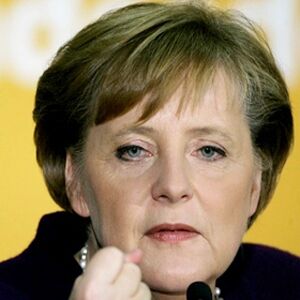
2007: Europe’s Year?
At the beginning of the year, theTrumpet.com commented on an analysis claiming 2006 to be Germany’s year. Halfway through 2006, we already see that to be true.
From a good economic start at the beginning of the year through the hosting of the World Cup in June, Germany is enjoying oodles of good press. Open German patriotism is on the rise, and a leader is in office who is enjoying a great deal of popularity—both at home and among the leaders of other European nations. This has all propelled Germany to the forefront of European politics.
And at the beginning of 2007, Germany and its iron lady, Chancellor Angela Merkel, will take the post as the European Union president.
Merkel has made it clear that she wants to help revive the floundering EU constitution. She also has advocated inserting a reference to God in the charter. She also is a proponent of simplifying the charter to make it more readily accessible to European citizens.
Under Merkel, the EU could make some dramatic strides toward greater cohesion. 2007 might just be Europe’s year. If it is, it would come just in time for the 50th anniversary of the Treaty of Rome, the birth of European unity, which will come March 25 of next year.
EU Commission President Jose Manual Barroso is particularly excited about Germany’s EU presidency coinciding with the Rome Treaty anniversary. “March 2007 must be more than a commemoration of past achievements,” he said; “it must be a restatement and recommitment to our values and ambitions, looking to the future for an enlarged Europe.”
On that day, Barroso looks forward to the signing of a “Berlin declaration”—“in a bid to add some political soul to Europe’s efforts to fill the vacuum left by the demise of the European constitution” (www.eupolitix.com, June 20).
Barroso said, “We will sign this together as a collective act of will,” and that the statement will be “our guiding light for the future of Europe.”
Even though Germany’s presidency will be only six months long (as European policy is set right now), the Trumpet expects Germany ultimately to take permanent reign of the EU. One of the main executive changes the draft constitution calls for is the elimination of the rotating presidency—something EU policymakers have been pushing for whether the constitution is fully ratified or not.
Bible prophecy points to a German-dominated resurrection of the Holy Roman Empire in the end time. Any time Germany asserts itself in more tightly binding Europe together, we must take careful notice.
Watch vigilantly Germany’s presidency of the EU in 2007. The persuasive Merkel and the golden anniversary of European unity might be just the recipe for Europe to assert a stronger role on the world scene.
